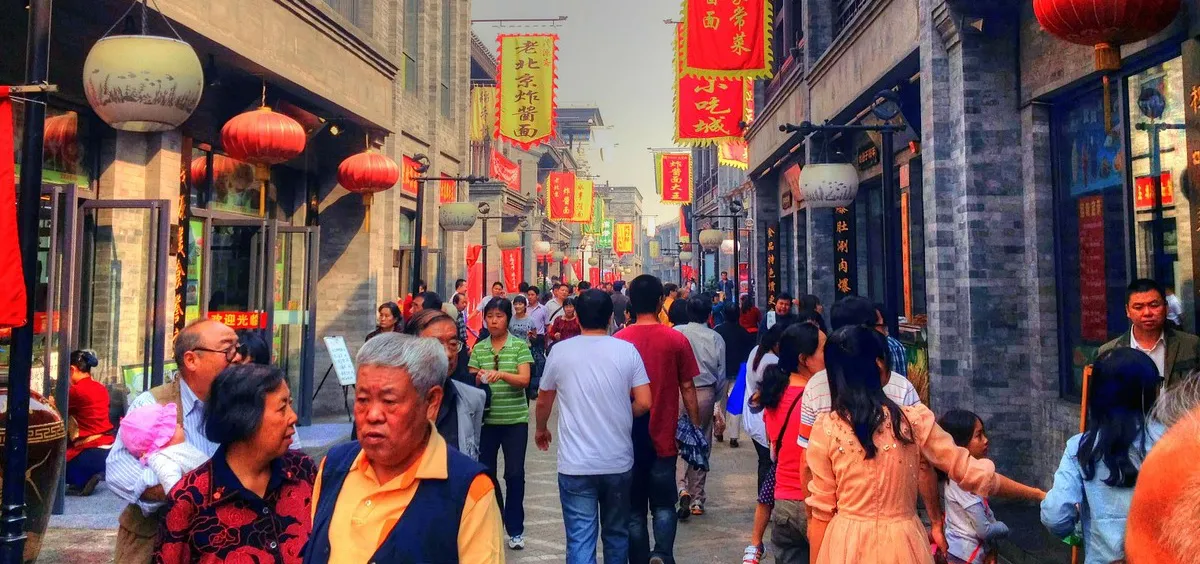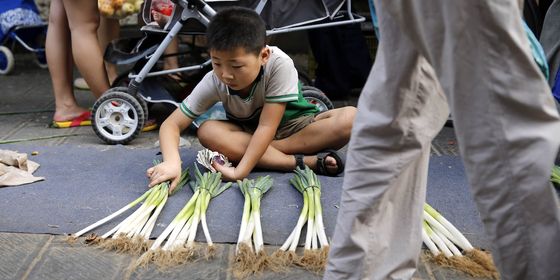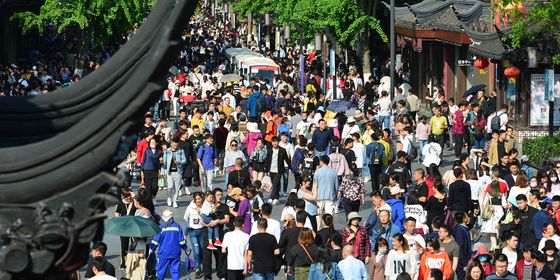The May holiday was designed to benefit workers—but is it still fit for purpose?
This week’s Labor Day holiday—which was abruptly tweaked a few weeks ago to run from May 1 (Wednesday) to May 4 (Saturday), one day longer than expected—have raised the hackles of holidaymakers again.
The last-minute change may have spoiled the travel plans of some people,who expected the holiday to run from April 29 to May 1. Others, though, would rather ditch the extra day altogether, especially as the two Sundays immediately before and after the holiday have been turned into working days to “make up” for the days off. It’s not a holiday, they say. So perhaps that’s simply the best solution: to stop calling them that.
China’s public holidays were designed at the end of the last century with two purposes—to give migrant workers, who fueled much of the heavy industry and infrastructure-building in the last 40 years, a chance to spend some quality time with their families (such as the children whom they saw only once a year), and to promote domestic consumption through shopping, tourism, and leisure. There were originally three seven-day vacations known as “golden weeks”: the Spring Festival in January or February, National Day in October, and Labor Day in May.
After initial enthusiasm, people soon soured on the concept of golden weeks: tourist sites were overwhelmed, and public transport buckled under the strain, with tickets impossible to find and queues everywhere. Even the promised consumption spike was canceled out by the spending slump that followed. In 2007, the Labor Day golden week was shortened to a three-day rest (including at least one day of the weekend), and the extra days were redistributed over a host of other traditional festivals that the government decided to promote to celebrate China’s ancient culture, hence the resurrection of the Dragon Boat, Tomb Sweeping, and Mid-Autumn holidays.
Argument about the value of this system continue to this day. Particularly frustrating is the lingering absurdity of “make-up days,” which exist to placate companies that bleat about the effects of public holidays on the economy, even as they pressure employees into working long hours and overtime. Mandated holiday dates give workers the collective power to resist exploitation, as enforcement of labor laws is notoriously lax.
For anyone who works at an international company (while the rest of their colleagues are enjoying a normal weekend), or simply find themselves sluggishly grinding through a six-day week at work, though, the logic of “make-up days” is largely lost.
The obvious solution is flexible paid holidays, but with 996 culture now widespread, amid ever-present fears of an economic slowdown, some will argue it’s a luxury the economy can’t afford. Still, if any further changes occur, they’re likely to follow this year’s May model—at the last minute, without warning, and sure to generate even further controversy.
Cover Image from Pixabay












